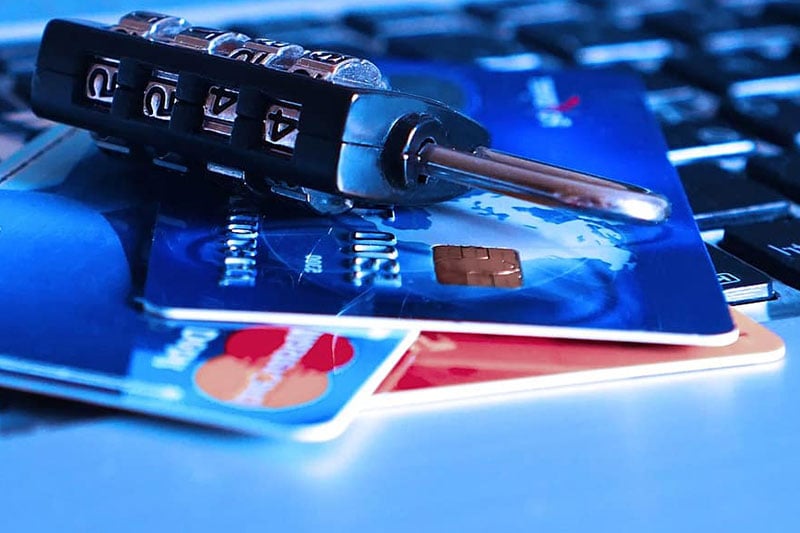Corporate identity theft can have serious ramifications for a business’s operations. Here’s what it is – and how you can safeguard your business against it.
Identity theft has become big business for criminals. It’s an easy, low-risk activity that makes them a lot of money!
When most of us think of identity theft we think of individual victims of fraud. However, businesses and organisations suffer from it as well. Sadly, there are even more victims when it’s businesses that are targeted.
Both employees and customers can be severely affected. Yet, despite this, there is still very low awareness of corporate identity theft among CEOs. There is relatively little media coverage of the problem, and many CEOs are prone to taking the issue too lightly, viewing cyber security preventive measures as sunk costs.
Here’s why companies should be more aware of identity theft – and the steps they can take to protect themselves.

What is Identity Theft?
Identity theft is when someone steals another person’s identity without them knowing. Your personal and financial information is targeted. The information stolen may include your social security number and credit card information, among other things.
The identity thief may use this information to purchase stuff, apply for credit, or take out loans and mortgages.
Thieves can also make bank withdrawals, file taxes, or even seek out medical services by pretending to be you. These acts can damage a person’s credit status, and cost them some serious time and money just to restore their good name.
How Serious is Identity Theft?
Well, let’s just say it’s very serious! Identity thieves can cause substantial damage. Let’s look at just how serious it can get in terms of reported figures:
• There are 500 reported cases of identity theft in the UK daily.
• More than 60% of identity fraud victims had a social media presence.
• There were 3.8 million fraud incidents in the year up until March 2019. This was a 17% rise over the year.
• There was an overall 41% increase in plastic card fraud in 2018 compared to 2017.
• 13% of British consumers feel it’s okay to use someone else’s credit card.
• Corporate identity fraud costs UK businesses in excess of 1.3 billion pounds.
If these identity theft statistics are anything to go by, it’s easy to see just how bad this type of fraud can be. And these stats are just in the UK. Identity theft is far more common in other places and can be even more serious.

The Business Ramifications of Corporate Identity Fraud
Individual identity theft can cause substantial damage, but when a criminal impersonates a business, the act of fraud can have much further-reaching ramifications.
Why Scammers Would Target a Business
Businesses have:
• Larger bank account balances, meaning that the thief can get away with a whole lot more!
• Easy credit and account opening, especially for small corporations.
• Higher credit limits.
• Minimal security especially for small businesses.
• Systems that make it difficult to investigate and prosecute the crime.
The Consequences of Corporate Identity Theft
• The business’s reputation can be negatively affected.
• Bankruptcy in the case of small corporations.
• IRS audit penalties.
• Drops in credit scores.
• Customers losing money and filing lawsuits.
Businesses hold so much information on employees, customers, and their own internal operations. It’s a huge deal for an identity thief to get a hold of such sensitive information, and businesses can be severely crippled by this type of fraud.
How Can Companies Prevent Data Breach and Identity Fraud?
If you own a company, here’s are the five most important things you can do:
1. Follow digital security best practices. These include strong firewalls, VPN for outside access, secure offsite data storage, software updates, secure wireless networks, among others.
2. Monitor business credit reports so that you can quickly spot suspicious activity and problems. This will enable you to fix them before they get out of hand.
3. Limit User Data access. Staff shouldn’t have free access to every file. Each employee should have their own username and password, which should remain private. Each account should only have access to appropriate systems.
4. Use strong passwords that cannot be guessed and also use different passwords for each site.
5. Build secure filing systems to restrict unauthorised access to important company information.
In addition, it’s important to remember the following cyber security tips if you suspect corporate identity fraud.
6. Act quickly: If you realise your company is under attack, don’t ignore it. Act as quickly as possible.
7. Look at credit reports closely: If you find dealings with organisations that the company doesn’t associate with, you should investigate!
8. Notify affected banks or creditors: This should be a top priority. This will prevent any further fraudulent transactions.
9. Change all affected account passwords: This will restrict further access to the company’s data and information.
10. Update all software and install antivirus solutions: You should always keep all your software up-to-date and never skip doing so.
11. Contact your telephone and utility companies in case the thief tries to open a new account using the company’s name.
12. Report to the relevant authorities: You should submit your identity theft report as soon as possible.
There is so much criminal activity taking place these days. Corporate identity fraud and data breaches can quickly become a massive headache for companies, whether they’re big or small. It’s therefore crucial that companies take it upon themselves to become more aware of identity fraud, and take key steps to protect themselves.
Related Articles
COVID-19 Cyber Security: How Firms Can Better Protect Their Data
Cyber Security: 7 Top Strategies for Businesses & Freelancers
6 Essential Tips for Secure File Sharing in a Remote Workplace





